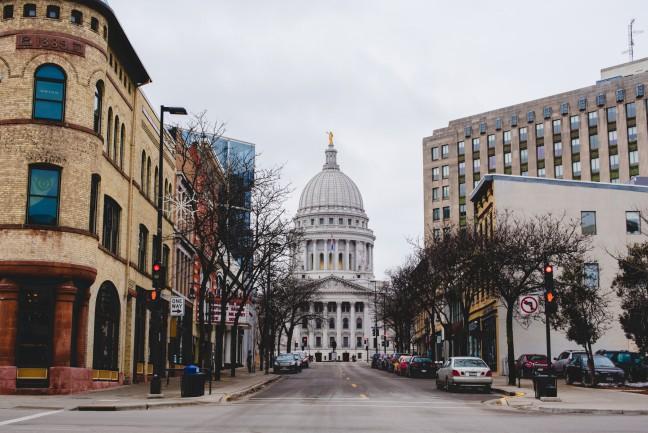More than a century ago, the Wisconsin government made a choice about how local and municipal government revenues would be raised. In a sweeping bargain, the state decided local governments should no longer raise revenue through income and sales taxes. Instead, the state would tax income and sales and transfer the revenue to cities and villages as aid payments. To supplement this revenue stream, local governments could levy taxes on property and use a variety of fees and fines to fund local services.
For decades, this arrangement worked. Municipal services in Wisconsin, like streets, libraries and parks were funded through generous state aid payments financed by income and sales taxes. State aid to municipalities kept pace with inflation and the Wisconsin Legislature made no moves to restrict locally levied property taxes.
Beginning in the late 1990s, the bargain began to break down. Wisconsin’s decision to expand the state prison system, enact a series of tax cuts and expand Medicaid left most of the state’s revenues accounted for, leaving little for local governments. The trend only continued.
After adjusting for inflation, the Legislative Reference Bureau estimated state aid for municipalities has fallen 40.9 percent between 1998 and 2018. As a portion of municipal revenues, state aid makes up only 19.4 percent.
According to U.S. Census Bureau data compiled by researchers at Willamette University, Wisconsin municipalities rely almost twice as heavily on property taxes as the average U.S. town or village, largely because state municipal aid has not kept pace with inflation. According to U.S. Census data, municipalities in Wisconsin receive 42.2 percent of their general revenues from property taxes, compared to the average U.S. of 23.3 percent.
The Wisconsin Policy Forum, comparing the data to national trends, show that Wisconsin municipal revenues are the seventh most reliant on property taxes in the country. The highest is New Hampshire, whose property taxes represent 52.3 percent of municipal revenues.
The situation grew more dire after 2006, when the state capped property tax increases, constraining the other main source of local revenue. While the caps lowered Wisconsin’s overall tax burden, they severely restricted the financial lifeline keeping municipalities afloat as state aid disappeared.
And local governments are showing signs of fiscal stress. Rising municipal debt levels, declines in street quality and a greater use of local vehicle registration fees or wheel taxes all suggest property taxes aren’t generating enough revenue to cover local expenditures.
Local governments are desperate to keep existing lines of revenue open. During the November 2018 election, at least nine municipalities were so strapped for cash that they voted to exceed state property tax caps, essentially wresting control of government finance back from the state government.
Thankfully, Tony Evers’ proposed 2019-2021 budget offers a pathway towards a solution. The budget will allow local governments to raise levies up to 2 percent, regardless of growth. Currently, municipalities can only levy taxes on net new construction, or the value of new buildings and remodeling minus the value of demolished properties.
Starting in 2020, the budget would increase state municipal aid by 2 percent, reversing the twenty-year tumble in state municipal aid — but aid would still only make up about 20 percent of municipal revenues.
Lawmakers must be held to a higher standard in creation of welfare laws
Unfortunately, this doesn’t go far enough, because municipalities are struggling to provide even the most basic services. Increasingly, they are forced to choose between supporting pensions for retirees, fixing crumbling infrastructure and properly staffing and stocking local libraries — and local governments shouldn’t be in this position. The Evers administration should demand more state aid for municipalities more quickly, as the first step towards lowering municipal reliance on property taxes. That must be the very first step.
Because we want a state where folks can retire with dignity, roads and bridges are as safe and energy efficient as they can be and every library is full of books.
Sam Ropa (ropa@wisc.edu) is a senior majoring in geography and anthropology.


